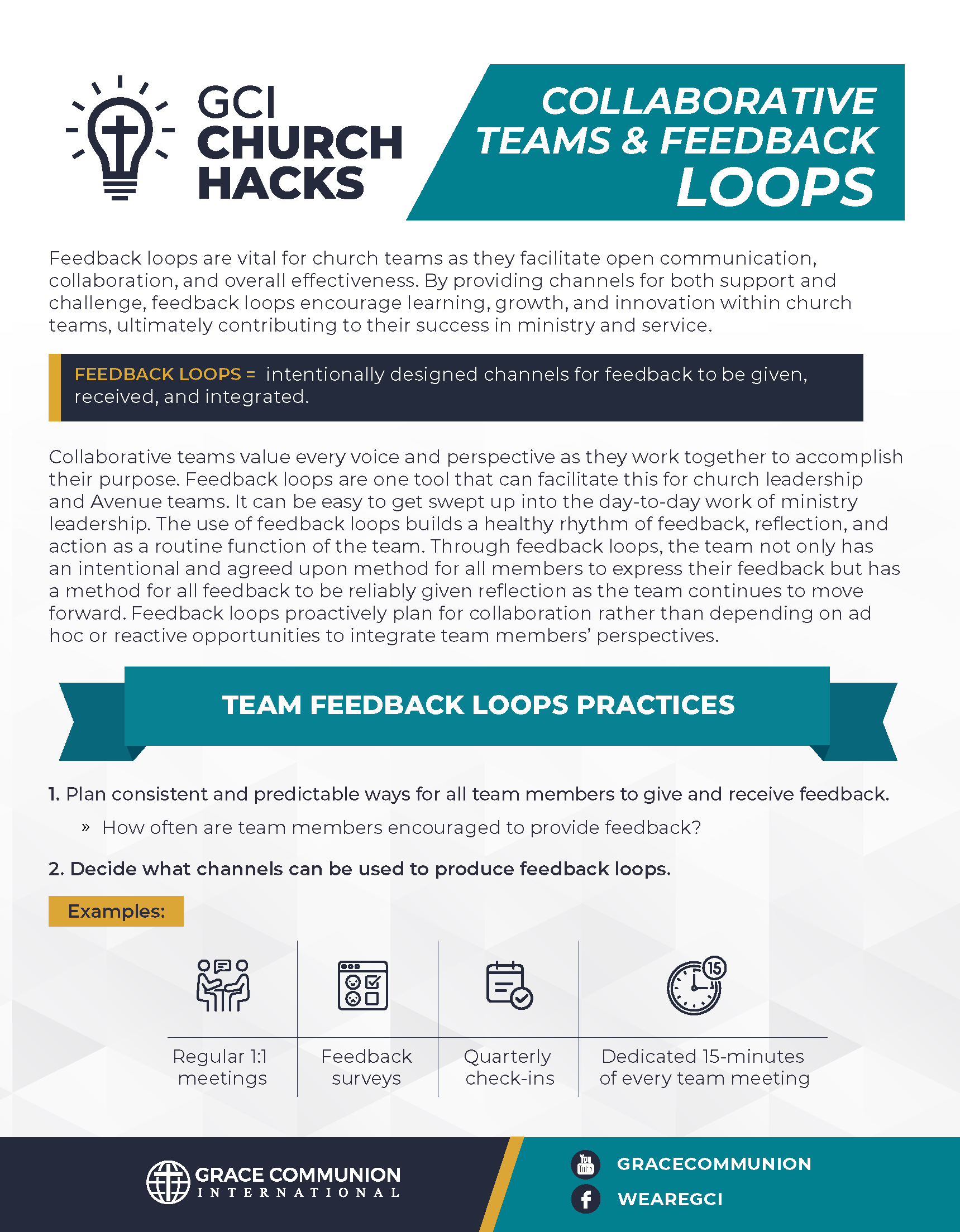Jared Neusch—Year B Propers 22-25
Welcome to the Gospel Reverb podcast. Gospel Reverb is an audio gathering for preachers, teachers, and Bible thrill seekers. Each month, our host, Anthony Mullins, will interview a new guest to gain insights and preaching nuggets mined from select passages of Scripture in that month’s Revised Common Lectionary.
The podcast’s passion is to proclaim and boast in Jesus Christ, the one who reveals the heart of God, Father, Son, and Holy Spirit. And now onto the episode.
Anthony: Hello, friends, and welcome to the latest episode of Gospel Reverb. Gospel Reverb is a podcast devoted to bringing you insights from Scripture, found in the Revised Common Lectionary, and sharing commentary from a Christ centered and Trinitarian view.
I’m your host, Anthony Mullins, and it brings me delight to welcome our guest, Dr. Jared Neusch. Jared is a research assistant and project manager for the McDonald Agape Nicaea Project at St. Mellitus College. He earned a PhD in New Testament at King’s College in London, and his research interests include apocalyptic readings of Paul (that’d be a great episode), hermeneutics, and Christian passivism.
Although he’s American, Jared now lives in England with his wife and their three children. Jared, thanks for being with us and welcome to the podcast. And since this is your first time on Gospel Reverb, we’d love to know a little bit about you, your personal story, and how you’re joining Jesus in his ministry these days.
[00:01:36] Neusch: Hey, thank you so much, Anthony. It’s great to meet you. And yeah, I’m really honored to be on the podcast. This sounded really fun, and it’s a privilege to be here. So, thanks for having me. And yeah, very happy to tell you a bit about myself.
As my accent gave away, I am American. I was raised in the South in Texas. So, I’m a Texas boy. I spent several years in pastoral church ministry when I reached adulthood, and my desire growing up was very much I want to be a church leader and lead a church ministry. But I ended up pursuing a Master of Divinity on the side of my job at the church, and I ended up falling in love with the academic side of things.
And so, then I finished that and began to explore PhD programs from there. And I ended up landing with one of your previous guests on the podcast, Dr. Chris Tilling. He was my supervisor for my PhD through King’s College London. Great guy, so I encourage listeners to check out that episode. It’s got a lot of great stuff to say.
So, my family and I made the sudden move to England. And we’ve been living here ever since for about five years. In terms of what I’m doing now I’m on the faculty of college in central London. Actually, you mentioned it. I’m working at St. Mellitus College and currently helping to project manage something to celebrate the 1700 year anniversary of Nicaea. That’s coming up next year.
But yeah, in terms of teaching, I teach a bit of Greek and New Testament, bits and pieces there. And then obviously the biggest and happiest part of my life is that I’m a husband and proud dad to three kids, eight, six, and three.
I guess, just as the last thing, this relates to another iron that I have it in the fire. I became a kid’s author with my good friend, Connor Shram, a few years ago. And we recently published a kid’s book series through Tyndale. And the first one is called Jesus Versus the Bad Guys. And we explore the question of how Jesus overcomes evil. And it’s aimed at introducing kids to Jesus as the radical forgiver, as the peacemaker, and an enemy lover.
Raising my kids, that’s one of the gaps I really felt and saw as I read books to them. There’s a lot of key bits that are presented about Jesus, but I thought man, I really want to bring out this enemy loving, peacemaking, nonviolent side of Jesus that we don’t often get enough of.
That’s a bit about me — a spattering of the various pieces of my world at the moment.
[00:04:45] Anthony: It’s fascinating to hear that you’ve written children’s books and the topics — wow! I have a feeling there’s going to be listeners that are like, where do I get this? Can you tell us where we can find the books if listeners would like to purchase?
[00:05:00] Neusch: Yeah, sure. And it totally was not a plan to begin with a plug for our product, but it’s a part of my world.
Anthony: It’s quite all right. I’m glad you did.
Jared: Yeah, so you can get it pretty much anywhere. If you just Google Jesus Versus the Bad Guys, it’ll be on Amazon and hopefully lots of local bookshops, as well. But it’s a three-part series, and the second book should be coming out next year. And yeah, we’re excited about it. Thanks for asking.
[00:05:30] Anthony: Absolutely. Jared, as we get into the content of our episode today, we’re going to be looking exclusively at the book of Hebrews, this beautiful, wonderful, and sometimes controversial text. So, context really matters. As we like to say, a text without a context can lead to a pretext of a proof text.
So, help enrich our understanding of the text. What context would you like to share that will help our preachers and teachers herald these texts?
[00:06:04] Neusch: Yeah. Great setup. One of the very, very unique things about Hebrews as a New Testament letter is that we don’t know the author, and this is rare in the New Testament.
And so, this makes date and historical context a bit of a trickier matter than, say, something like Romans where it’s explicit who’s writing, who is being written to, and what’s going on there. But not having the author again, we then have to be a bit more of a detective and try to figure out what’s going on and what the context is.
Just some interesting information. This was originally received — I say originally — in some of the early church, it was received as a Pauline letter. It was grouped with other Pauline letters in early Greek manuscripts. And so, we can see that they treated it that way for at least a time.
But then we began to find church fathers, like Origen, stating that the ideas were Pauline in general, but not necessarily the author itself was Paul. One of the reasons that we now are confident it’s not Pauline is the uniqueness of the Koine Greek that was used. It’s — I find this fascinating — it’s one of, without a doubt, the best and most beautifully written Koine Greek letters in the whole of the New Testament.
It’s really unique. It’s got poetic style and portions, short punchy sentences, in others, rapid questions, things like that. And even the vocabulary is just incredibly robust. It’s got I think 150 words not found anywhere else in the whole New Testament. So, when you’re looking at Paul’s corpus and then you look over at Hebrews, if you’re a Greek scholar, you’re like, oh, wow, this is cut from a different cloth.
And so, we can now know, hey, sure, there may be some Pauline concepts here, but we don’t think he was the author — and even things like not having a traditional Pauline introduction, like a greeting or thanksgiving. But it is a letter. And we do get some of the epistolary bits, especially at the end, talking about Timothy and stuff.
But in terms of date. Again, we don’t know for sure, of course, but many think probably in the 45 to 70 AD range cause there’s no mention of the destruction of the temple, which leads people to think it’s probably written just before that, just before that occurred in 70.
And then in terms of audience, we don’t have an overt mention of, it is this church in this location with these people. But the author does assume a really in depth understanding of the Torah from the readers. There’s an assumption that they understand the sacrificial system and Levitical laws and all of these things. And so, because of this, probably correct assumption is that the audience are Jewish Christians.
Hence the name of the book Hebrews. And it seems like these Jewish Christians were experiencing persecution and hardship. And so, in general, the letter is aiming to encourage these believers to remain steadfast and to really persevere in their faith, despite the various difficulties they seem to be facing, and maybe the temptation, as well, to revert to Judaism and abandon their faith in Christ.
So again, that helps explain some of the direction that the Hebrew author has gone in their text. So that’s a bit of the context and some of the best we can do without knowing who exactly the author is.
[00:09:58] Anthony: Through the years, Jared, I’ve heard maybe Apollos or Junia. Of course, there are those that still subscribe to the idea that Paul had written Hebrews. If I were to press in on you and ask you, who do you think it is? And I know it’s just speculation, but who do you think wrote it and why?
[00:10:16] Neusch: I will be explicit that I have no secret knowledge on this.
And you shouldn’t take what I’m saying to the bank at all. But I at least just like the idea that a woman wrote it. That to me seems fun. And it’s a kind of a fun idea to run with in terms of the kind of thing that the church would do, as inspired by the Spirit, to demonstrate the value for the female voice.
So, I am inclined to be persuaded by whoever it would be, Junia or Phoebe or someone like that. But I, of course, have no way of knowing that for sure.
[00:11:02] Anthony: That was an unfair question, but I appreciate you going along with me.
All right, let’s do this. Let’s dive into the lectionary texts, which we will be discussing for this month. Our first passage of the month is Hebrews 1:1-4, 2:5-12. I’ll be reading from the New Revised Standard Version, the updated edition. It is the Revised Common Lectionary passage for Proper 22 in Ordinary Time, which falls on October 6.
Long ago God spoke to our ancestors in many and various ways by the prophets, 2 but in these last days he has spoken to us by a Son, whom he appointed heir of all things, through whom he also created the worlds. 3 He is the reflection of God’s glory and the exact imprint of God’s very being, and he sustains all things by his powerful word. When he had made purification for sins, he sat down at the right hand of the Majesty on high, 4 having become as much superior to angels as the name he has inherited is more excellent than theirs.
5 Now God did not subject the coming world, about which we are speaking, to angels. 6 But someone has testified somewhere, “What are humans that you are mindful of them or mortals that you care for them? 7 You have made them for a little while lower than the angels; you have crowned them with glory and honor, 8subjecting all things under their feet.” Now in subjecting all things to them, God left nothing outside their control. As it is, we do not yet see everything in subjection to them, 9 but we do see Jesus, who for a little while was made lower than the angels, now crowned with glory and honor because of the suffering of death, so that by the grace of God he might taste death for everyone. 10 It was fitting that God, for whom and through whom all things exist, in bringing many children to glory, should make the pioneer of their salvation perfect through sufferings. 11 For the one who sanctifies and those who are sanctified all have one Father. For this reason Jesus is not ashamed to call them brothers and sisters, 12 saying, “I will proclaim your name to my brothers and sisters; in the midst of the congregation I will praise you.”
So, Jared, what are your insights on the high Christology found in Hebrews 1:1-4? And how should it inform our understanding of God and Scripture?
[00:13:38] Neusch: It’s really quite a profound thing that the author says here to open this letter. It’s a really, really important start to this letter that helps us understand a lot of what’s going on here.
So, this author says for a long time, God spoke to us through a variety of ways by the prophets. But in these days, he now speaks to us by his Son. And then the author goes on to clarify how the son is the exact imprint of God’s being. And I don’t think it’s a mistake that there is a clarification of how this new way of God speaking carries the exact imprint.
There’s a suggestion there about the previous representations of God, if this new way is the exact imprint. So this speaks to the clarity. And one might even say the absolute reliability of God’s message now through the Son. And in short, I think this is saying Jesus is the supreme way God speaks.
And I find this text to be a beautiful companion to John 1. And versus 17 – 18 come to mind; obviously the whole chapter is great. (And I can hear you saying, yes.) So, it says the law indeed was given through Moses, grace and truth came through Jesus Christ.
And then just the author of Hebrews does same here, John then goes on to talk about the Son’s ability to represent God in a way that no one else has been able to. So then verse 18, no one has ever seen God. It is the only Son himself, God, who is close to the Father’s heart, who has made him known. So, in both John 1 and here in Hebrews, there’s this sense of, hey, God has — sure he has spoken in these other ways and it’s beautiful. And it’s certainly a part of the story. And then there’s almost okay, the pin drops here. And it’s now he has spoken through his Son, and he clarifies: and the Son is the one that is truly, with absolute clarity, the highest resolution image of God that we’ve ever seen.
And so, there are some implications here. So Christologically, we get a message of hermeneutical priority. And what I mean by that — for there might be a spectrum of listeners here who have different experience with theology — but that just means in terms of interpreting Scripture, Christ takes center stage in directing that. And we have heard from God through some mediums, but now we have heard through the Son, who is the exact imprint.
And so, this is the highest, again, the highest resonance image we have. And so, Christ is the supreme hermeneutic when reading the scriptures the supreme interpretive ethic.
And although the revelation of Christ, in some ways, it seems to build upon what came before, but it is, nevertheless, also the beginning of the story and it is superior. And it is the center. So, I guess to summarize that Jesus is superior to all the ways God has previously revealed himself.
And so, our readings of Scripture should reflect that whatever else we might come across in reading Scripture about God and how he may be presented or represented in certain ways, the revelation of Christ must stand as the highest order of truth through which we filter all other revelation, all other depictions and images of God.
It must be our hermeneutical North. And I think that is a key thing here that this is how the author starts Hebrews, and it sets the tone for us.
[00:18:02] Anthony: I appreciate what you said about him being the highest hermeneutical ethic. Since it is about him, he is our true North, our starting point.
He is the hermeneutical key for all of Scripture.
And yet Jared, often when I hear preaching, it doesn’t start with him. It starts with us. Or I hear instead of exegesis, sometimes eisegesis. And I’m just curious. I didn’t plan to ask you this, but you, I know, love hermeneutics. So, what would you say to preachers, as a guide, to help them know that when I come to a text, I want to have the highest Christology, the highest hermeneutical ethic as possible.
Any steps, any guidance that you would provide to preachers and teachers in that way?
[00:18:52] Neusch: I mean, even your question is instructive for these preachers and teachers to make sure that they are keeping Jesus as central. And I think it goes down to the very center of how we understand the gospel.
And we probably won’t get into this in this podcast, but you mentioned at the beginning apocalyptic readings of Paul. And in short, that is readings of Paul that most centrally account for the impact of the revelation of Christ on Paul and the apocalypse or the revelation of Christ is central for Paul.
And it’s the beginning of the story for Paul. And it helps him make sense of the whole grand narrative of Scripture, but it begins with the revelation of Christ. Because as you rightly said, if we begin various theological explorations with a problem or sin, some of these other things or our story, then — it’s very subtle, and we often don’t even know we’re doing it — but we are framing the rest of what then comes, we are conditioning and contextualizing Christ in our story or in our problem. And then he appears as a bit of a cameo in something else that’s going on. And so, then the sin or the problem or the issue or our life or our story, helps make sense of Christ rather than the other way around. It’s the revelation of Christ that helps us truly understand what the sin problem was, helps us truly understand the narrative that we were in, and all these other things.
So, I think, yeah, to preachers and teachers, I think it’s a constant journey, but I think returning over and over to these key texts like John 1 or Hebrews, of course, the Gospels in general, to keep Jesus as the center and as the human, as the hermeneutical priority in Scripture.
And maybe this would be also a good checkpoint as well. If we’ve developed a sermon, and we’ve got bullet points at the end. And we see, I’ve done these three things that I’m communicating as maybe some sort of principle or guide or something, they need to be clearly consistent with what God has revealed in Christ by the Spirit. So, it needs to be incarnational. It needs to reflect Jesus. It can’t be at odds with what God has revealed about himself in Christ. Otherwise, we’re in some sketchy waters.
[00:21:42] Anthony: Oh, that is really helpful. And I hadn’t even considered maybe those bullet point, keys at the end of a sermon, but they still have to reflect the truth of what God has revealed in Jesus Christ. And it’s certainly as J. B. Torrance would say, can’t throw people back on themselves to work this all out without the work of the Spirit. Thank you for that.
Is there anything else from this text that you would want to shine the spotlight on for preachers and teachers in helping them prepare this Sunday’s sermon?
[00:22:18] Neusch: Yeah, I think I would want to maybe just to reemphasize that our theology is grounded in Jesus. So, I would want to communicate the reliability of Jesus to show us the Father, not just a part of the Father and not just, oh, this revelation of Christ clearly shows us this, but we have this competing idea in a different place. That’s just as equal, just as good, just as high.
Jesus is God’s supreme self-revelation by the Spirit. And so, this must make a difference in how we read the Old Testament. Not to be gloomy or negative here, but I do sometimes think our interpretations of the Old Testament wouldn’t change that much whether or not we had the story of Jesus dying on the cross.
We’d still say, oh wow, look at how great David was and look at this courage and look at the wisdom of Solomon, and look at Abraham’s willingness to sacrifice his son. All these things are great. And sometimes they have a nod to Christ. Oh, this looks Jesus being sacrificed. Or oh, David killing Goliath looks like Jesus defeating our enemies. And that’s a cool reflection, but it doesn’t go deep enough.
And I think it has to mean something for our interpretation of the scriptures that God has revealed himself in Jesus. And I think it sometimes requires radical readings and re-readings like we see the apostle Paul doing. And I think we need to be willing to be pushed a bit further by the revelation of Christ. And I think, yeah, Jesus is not just one section of our systematic theology, cordoned off in the Christology section. The incarnation is the cornerstone, the fountainhead of our theology as a whole.
I think I would just really want to emphasize that.
[00:24:32] Anthony: That’s a good word for all of us who have the privilege and the responsibility to teach. So, thank you, Jared.
Let’s move on to our next passage of the month. It’s Hebrews 4:12-16. It is a Revised Common Lectionary passage for Proper 23 in Ordinary Time, which is October 13. Jared, I’d be grateful if you’d read it for us, please.
[00:25:03] Neusch:
Indeed, the word of God is living and active and sharper than any two-edged sword, piercing until it divides soul from spirit, joints from marrow; it is able to judge the thoughts and intentions of the heart. 13 And before him no creature is hidden, but all are naked and laid bare to the eyes of the one to whom we must render an account.14 Since, then, we have a great high priest who has passed through the heavens, Jesus, the Son of God, let us hold fast to our confession. 15 For we do not have a high priest who is unable to sympathize with our weaknesses, but we have one who in every respect has been tested as we are, yet without sin. 16 Let us therefore approach the throne of grace with boldness, so that we may receive mercy and find grace to help in time of need.
[00:25:55] Anthony: It seems to me Christians generally understand the importance of reading the written word, as we’re doing. But this pericope, especially in the earlier portions of it, it points us, in verses 12-14 to how the ultimate Word of God, the living Word, Jesus Christ (which you just talked about in the last passage) reads us by the Spirit.
So, what would you want our listening audience to know about this particular double movement?
[00:26:26] Neusch: I’ll say kind of an introductory thing at first, and then I’ll get into that two-way movement bit, if that’s okay.
I don’t know about you, but I’ve mostly heard growing up this text taught in sermons as simply, and one dimensionally, being about the Bible: this just is a text about the Bible — which of course would have only been the Old Testament at this point when it was written. And the problem with that interpretation, that this is just saying the Bible is living and active and sharper than any two-edged sword, is that it’s insufficient.
It doesn’t quite cut it. And you can get that from context, just reading a bit about what it says, but also, more so theologically. And the letter, as we just read last was, it began with Hebrews telling us that God has spoken through other ways previously, but now he is speaking through his Son.
And so, the main thrust of Hebrews is about the supremacy of Christ, in general, as the way that God speaks now. And so, we do get the sense that with this Greek word, the logos, it’s not just Scripture. Although it very well may include, it doesn’t exclude scripture, but the logos is so much more big. It’s the logic of God. It’s the Word. And we know through John 1, it manifests as Christ.
Some movements of the church can slip into almost the deification or worship of Scripture a bit, especially when they use the “word of God” in this text to just mean the Bible. And I think we need to be a bit wary of that because the scriptures need to be read through the logos of Christ.
It needs the Spirit of Christ, as the life giver, as we read it. Because Jesus even says, you search the scriptures because in them, you think in the scriptures, you think you have eternal life, but it’s actually me that these scriptures are speaking of it in the first place. [John 5:39]
That’s one of the clarifications, which you said in the very beginning. It’s more than just Scripture. It’s the voice, it is the logos, the logic of God, who now we know him as the Son. And so, I think that’s an important way, an important frame for understanding this and being with him, being wary of just reducing it to our leather bound books on our bedside table.
[00:29:15] Anthony: Yes.
[00:29:16] Neusch: And also, because we know that the scriptures can be weaponized and used for very anti-Christ purposes. And so, we don’t just want to have a flat statement that, look what this book does. It needs the Spirit of Christ, the logos, for that proper interpretation and application.
In terms of the two way flow you were speaking about, I think this is part of the way — wouldn’t claim to do it well, but I aim to do biblical studies and theology. Because in some ways I am a scientist of sorts, investigating the text with my tools. I’ve got my exegetical scalpel, this and that.
And then we get from Karl Barth (and you can name so many people) this idea of the reality of God. And it makes it such that when we do theology, we are dealing with God himself here, not just an abstract concept that we can kind of fillet out on the lab desk and work with. So, I feel a bit like in the biblical scholar world, I’m using my Fisher price tools to try and chip away at the scriptures.
But ultimately, it’s the logos of God who is piercing to the division of my soul and spirit and is discerning the thoughts and intentions of my heart. It’s the logos of God that pierces and cuts and devise and examines us. We don’t then want to avoid investigating scripture. I think that’s helpful. And it’s part of the process and the journey of honoring the text, of valuing it and using our best tools to help us make the most sense of it.
But in doing so, we also have to step back and go, we are also dealing with the reality of God here, who we are theologizing about, who is cutting us in the process. And he is, in a good way, pruning us and doing surgery on us and helping us. So that’s just a bit of the way I tend to think about it.
[00:31:43] Anthony: That is a helpful frame. And we invite the Lord by his Spirit to do his surgery. And we’re reminded that all surgery is major surgery. There’s nothing minor about any surgery.
Jared, in the staggering reality of the ongoing incarnation of Christ, we have a high priest who gets us, understands us, who knows our weaknesses, our suffering. And just for a moment, I want to pull in a quote from George McDonald. He wrote, “Jesus is in himself aware of every human pain. He feels it also. In him too it is pain. With the energy of tenderest love he wills his brothers and sisters free, that he may fill them to overflowing with that essential thing, joy.”
And in that case, joy is paradoxical, right? Maybe this is the mercy that the author of Hebrews tells us about in verse 16, that we receive mercy. And that part of that is joy that doesn’t make sense in the midst of all that’s going on in our lives. But tell us more about this incarnate one who gets us.
[00:33:00] Neusch: Yeah, what a powerful and just a really profound reality. I think about it on a few different levels. On one level, it is incredibly meaningful, and it really encourages us that he has endured suffering, and pain, temptation and all these things, and we’re not alone in our trials. And that really does make a difference.
We have to imagine the possibility that it could have been a world in which God did not incarnate, and he was a distant, he or she was a distant figure on a throne who could not relate, wasn’t interested in relating. And that would be a bummer of a relationship with God.
But it’s such a gift that we have one who became man, became human. And that there is that identification and that solidarity with us. And that’s really, really, really meaningful. And it shows God by love.
It shows you there’s not much of a clearer demonstration of love than that and his coming and his willingness to incarnate and suffer and die to be with us. So that’s beautiful, and it really cuts deep.
On a second level, I tend to think of this also as a bit of a blueprint for us, for solidarity and peacemaking and love for others around us. I see this about Jesus, and I think we’re challenged to imitate him by seeing those who are marginalized, in danger, and in need, and we are then challenged to descend into their world, so to speak, to participate with them. And this is the nuts and bolts of how one lays down their life for others, which refers to in the New Testament, “no greater love,” and it speaks about laying down a life. I think this is some of what that’s referring to.
So, on one level, it’s hugely meaningful for us. I also am inspired by it and take it as a model. Oh, I think there’s an incarnational ethic there, that we can go into other people’s space where they need someone with them and join them and not just pray from a distance or something like that. I think that there’s something to grab hold of there in terms of our own living.
And then I think, maybe on a third level, I think about this that there is a participation here, as well, that now flows the other way. It’s not just that Christ has experienced our world — though, again, this is very meaningful — but in him experiencing our world and in his resurrection now, we now participate in his reality.
He has grabbed ahold of our wrists and pulled us with him when he was with us. Because of this, we’re not only, as Paul stated, crucified with Christ (there’s that participation there), but we’re also now sharing in the reality and the hope of the resurrection to come as well. So, him being someone who is with us and knows our suffering and weakness, it’s great that it’s meaningful that he’s there with us.
And then on the other side of the same coin, there’s this excitement that I’m now getting to share in his reality. So, he “gets us,” but now he’s made it such that I get to understand him and get to inhabit his space as well. I’m moved by that kind of participatory dynamic in this idea.
[00:37:13] Anthony: Jesus is the true human in my mind. As you referred to, we can look at him and see an example of what some might call incarnational living. And you talked about laying down your life for another, and I think of a Pauline text that tells us to esteem others greater than ourselves And Jared, I don’t know about you, but that does not come naturally for me. I’m really good at esteeming myself, but putting somebody else above my interests and needs, it does not come naturally, but it’s a supernatural thing by God’s Spirit. And to be active participants in that, in the divine nature, as you alluded to at the end, that we get to join him in his love relationship with the Father and that gets expressed with our neighbor. What I take away from what you just said is always, there’s more than meets the eye when we come to Scripture.
There’s such depth and richness and robustness if we would just allow the spirit to help us to see. Just a statement and a thought.
[00:38:21] Neusch: Really well said.
[00:38:30] Anthony: Let’s transition to our third pericope of the month. It’s Hebrews 5:1-10. It is a Revised Common Lectionary passage for Proper 24 in Ordinary Time, which is October 20.
Every high priest chosen from among mortals is put in charge of things pertaining to God on their behalf, to offer gifts and sacrifices for sins. 2 He is able to deal gently with the ignorant and wayward, since he himself is subject to weakness, 3 and because of this he must offer sacrifice for his own sins as well as for those of the people. 4 And one does not presume to take this honor but takes it only when called by God, just as Aaron was. 5 So also Christ did not glorify himself in becoming a high priest but was appointed by the one who said to him, “You are my Son; today I have begotten you”; 6 as he says also in another place, “You are a priest forever, according to the order of Melchizedek.” 7 In the days of his flesh, Jesus offered up prayers and supplications, with loud cries and tears, to the one who was able to save him from death, and he was heard because of his reverent submission. 8 Although he was a Son, he learned obedience through what he suffered, 9 and having been made perfect, he became the source of eternal salvation for all who obey him, 10 having been designated by God a high priest according to the order of Melchizedek.
We read that Jesus is ultimately the greater high priest. And as you mentioned in the context of Hebrews, it wants to point us to the supremacy of Christ. But those can just be words if we’re not careful. So, I guess I’m going to invite you to make it personal. How is Jesus Christ the greater high priest and why does it matter, Jared?
[00:40:28] Neusch: Yeah, there’s a lot in that text. I think there is a lot that could be learned in that text. Especially if you really want to dive into the Old Testament and the roles of the priests and the priesthood and sacrifices and all of that. And I don’t consider myself an expert there. So, I think there’s just so much more that we can learn on this.
But in general, Israel’s priests had a role to represent the people of Israel to God and to offer various kinds of sacrifices. But some of the problem — I think there were multiple problems — but some of the problem was that the priests were flawed themselves. And so, they were even having to offer sacrifices for their own sin as they were going about this process.
But also, they were operating under a different covenant than we are in now. And through this process, ultimately, a new covenant was needed. And so, Jesus is the needed solution. But he didn’t come from the line of Aaron; he comes from a different line altogether, which the author says is the line of Melchizedek, which is, of course, a bit of a mysterious figure.
And you can dive in and see what different people think about that, but he appears in the stories of Abraham and in Psalm 110 as well. In general, there was an insufficiency in the system leading up to Christ. Like Paul tells us in Galatians, the law functioned as a tutor until the arrival of Christ.
It wasn’t in competition with Christ or something that needed to be destroyed. It was put in place as a bit of a pedagogue, as a tutor that would lead us there until the fullness of time. And this was great, but ultimately it was always insufficient. It was never meant to be sufficient.
It was meant to lead to Christ eventually. And so, it did not, it could not compete with the supremacy of Christ, his salvific work. And this is the same when we think back to the beginning of Hebrews 1 that we’ve talked about; there are ways that God has acted and moved and mediums he has worked through in many times, in many ways, but now his Son. And so, Christ is able to offer the ultimate deliverance in a way that we were obviously never able to.
I guess just to kick things off, that’s how I understand the previous system and its role in the story and how Christ mediating this new covenant is just supreme.
[00:43:32] Anthony: And thanks be to God that he is the mediator, and he mediates our relationships.
And I bring that up as a tip of the spear of what I’m about to ask. In its original etymology, the word arrogant means to claim for oneself what’s not rightly theirs. I say that because there’s just no whiff of arrogance in Jesus, even though he is the supreme high priest. He did not claim the honor of high priest apart from the Father appointing him. He did not glorify himself.
I’m curious what do you make of the humility of God revealed in Jesus Christ? And again, why does it matter?
[00:44:17] Neusch: This, you know, immediately makes me think of Philippians 2, which is the earliest Christ hymn that we have, at least we think. And it says, “He did not regard equality with God something to be grasped but emptied himself taking the form of a slave, assuming human likeness and being found in appearance as a human. He humbled himself and became obedient to the point of death, even death on a cross.”
The humility of the incarnation, suffering and death of Christ — and to me, this is a really, really big point in my own theology, in some of my writing, in some of my passion, even when it comes to Christian pacifism is this way of Christ, the humility, the willingness to suffer these things.
And this is not a 33 year blip on the radar of God of how he was this one time. Oh, in this moment, he was the slain lamb and nonviolent, but now he’s the lion of Judah and he’s coming back to retributively take everyone out.
No. This is not just a little blip on the radar of God that finished. This is a perfectly clear window into the nature of God. This is what God has always been like. It is what he will always be like. It is how he is.
And there’s — I need to stay on topic here, but you can get into the book of Revelation, and it reads in perfect harmony with this humble suffering, slain lamb depiction of God. We don’t need to take a right turn when we get to the Eschaton and go, all right, now he’s coming back for blood, and it’s going to be quite a violent story. There is a way to read this where it is the slain lamb and his army of martyrs. But we won’t get into that now.
This is then central, if we bring things back to hermeneutics or biblical interpretation, this humility, that God reveals in himself through Christ. This willingness to self-empty while we were still sinners and while we were still enemies and violent towards him, he positioned himself in this beautiful, canonic way.
And this sort of depiction of God, like I said, it’s not a blip on the radar. It is how he was and how he will always be. And I think this, understanding of God needs to be excavated a bit more rigorously in our reading of the Old Testament. And so, there’s so many reasons it matters.
That’s one of the ones that comes to mind. This needs to play out in our reading of the scriptures. We don’t want it to just be that we see this way or manner of God in tiny little pockets. And especially when we get to the Gospels, but elsewhere, we see a bit of a different view. This is how God has revealed himself most clearly, and it needs to matter in terms of how we read Scripture.
[00:47:59] Anthony: Yeah, it’s going back to what we said earlier about him being Jesus, the true human, showing us how life can be lived by the Spirit and the outworking of his humility. It can’t be compartmentalized; it must be reflected, embodied in the way that we live.
And referring back to the last pericope, we talked about the outworking of loving our neighbor, laying down our lives, esteeming them. But it’s a double movement as well, because I think one of the problems we’ve had, especially say quote unquote Christian missions, is we’re coming to save somebody. Or we’re coming in to be the hero and not in great humility, in Christ’s humility, asking ourselves, what can we learn from the other? How can they serve us? How can they be a blessing to us?
I think that’s part of the outworking here of Christ’s humility that abides in us by his Spirit is that, you know what, there is something for me to learn and to receive from the one that I’m going to serve. And so, there’s, oh, there’s so much we could say, but it’s just one of the thoughts that came to mind.
[00:49:12] Neusch: That’s beautiful, Anthony. And it’s so delightful to hear you say that. This sort of view of Jesus is the antidote to, you know, colonial missiology, where it’s going to coerce and dictate the way things are going. And instead, what you’re talking about is absolutely beautiful.
And it perfectly captures the way of Christ. So that’s amazing.
[00:49:45] Anthony: May it be so Lord.
Our final pericope of the month is Hebrews 7:23-38. It is a Revised Common Lectionary passage for Proper 25 in Ordinary Time, which is October 27. Jared, we’d be grateful if you’d read it for us, please.
[00:50:08] Neusch: Yes.
Furthermore, the former priests were many in number because they were prevented by death from continuing in office, 24 but he holds his priesthood permanently because he continues forever. 25 Consequently, he is able for all time to save those who approach God through him, since he always lives to make intercession for them. 26 For it was fitting that we should have such a high priest, holy, blameless, undefiled, separated from sinners, and exalted above the heavens. 27 Unlike the other high priests, he has no need to offer sacrifices day after day, first for his own sins and then for those of the people; this he did once for all when he offered himself. 28 For the law appoints as high priests humans, who are subject to weakness, but the word of the oath, which came later than the law, appoints a Son who has been made perfect forever.
[00:51:00] Anthony: Amen and hallelujah. For the sake of time, I’m going to stack two questions into one. I don’t like doing this, but they do relate to each other. First of all, the statement “once for all” shows up repeatedly in Hebrews, and it’s really crucial, I think, to understanding the epistle. So, what does that mean and what’s included in that?
And also Jared, we read about this forever high priest who lives to make intercession for us, which is interesting because in Romans 8, we also learn that the Spirit intercedes for us. So, we’ve got the Trinity on alert on our behalf, but it’s not a once per year on a high day of atonement, but perpetually praying on our behalf. And that’s just almost too much to take in.
So, I wanted to ask in this “once for all” high priest, can we rightfully say Jesus Christ is humanity’s ultimate prayer partner, and when we pray, we’re joining him in his ongoing, already prayers to the Father? What are your thoughts?
[00:52:05] Neusch: Yes. Wow. It’s powerful imagery. That’s well said.
I think one of the ways we need to avoid thinking about him interceding for us is that Jesus is currently in heaven holding off the Father or petitioning the Father to forgive us or to be merciful to us because otherwise he wouldn’t.
But instead, we know obviously God was in the Son on the cross reconciling the world to himself. This has been his plan all along. So instead, Jesus is here, he’s something of a mediator of this new covenant. And as we are still a community in process, we’re still being sanctified.
Jesus is maintaining this covenant for us and praying for us. And so, we have confidence that regardless of us and our inevitable moments of infidelity, we can count on the faithfulness of Christ. This is, in the Greek, pistis Christou, and it’s a term used by Paul often and primarily in reference to the events surrounding Easter.
But here, I think we see the faith and the faithfulness of Christ continued in the heavens as he is faithful to continue interceding in for us and mediating this new covenant. And yeah, it’s this wild prayer partner but also, as you said, communing with the Father about us. It’s a really humbling and beautiful concept.
I wouldn’t pretend to understand it, but I am moved by it for sure. And, like you said, there’s this once for all peace as well. And this speaks to the sufficiency of Christ and the work of Christ. Much of what Paul writes about in Galatians, but also Romans and elsewhere, is that now we do not need to rely on the works of the law.
But instead — again, bringing back to pistis Christou — is the faithfulness of Christ, which justifies us and saves us. And so, our justification and salvation don’t come about because of what we have done or what we’re going to do. And we’re not holding things together. It’s achieved through his faithfulness, and in this position he has next to the Father, we can rely on.
And so, the “once for all seals” the deal on this. It is “once” meaning we don’t need more sacrifices and more works of justification or deliverance or anything like that. And then the “for all,” I would say, this is obviously a matter of scope as well. It is not a limited atonement or a limited deliverance. What we’re getting here is it’s total.
That would be my thoughts on that pericope.
[00:55:07] Anthony: Jared, you are a beloved child of God, and we love the way that your sonship is being worked out in your work that was brought to bear here today. I’m so grateful that you would join us.
And I wanted to remind our listening audience, and I take this from Michael Reeves, a fellow Brit. He said, “There is now a man, a real man with our flesh and blood, our experiences of the world, our humanity, in heaven. For all Christ’s heavenly majesty, seated on the throne, he is not now aloof and unconcerned. He knows, and loves, and intercedes for his own.”
Hallelujah. Praise god.
I want to thank our podcast team who made this episode possible, Reuel Enerio, our podcast producer, Elizabeth Mullins, our transcriber, and Michelle Hartman, our fearless leader. It’s just great to work with a team of people to make this podcast happen.
And Jared, it’s our tradition here on Gospel Reverb to end with prayer. So, I’m going to invite you to pray for us, please.
[00:56:13] Neusch: Yeah. Thank you.
Spirit, thank you for this time. Thank you for the ability to be able to dialogue about the written word, but also the living Word, the logos. And we can do this from a distance through microphones.
I just I want to speak a blessing over all those listening, wherever they are, just an encouragement. And I pray that the Spirit of Christ meets with you, encourages you, comforts you. And we just pray, Lord, that as we journey with you, as we get to know you, as we read the scriptures, that we would be enraptured by the logos of God, that we would be moved by it, that we would be divided down to soul and spirit by the logos and that as we read scripture, you would continue to work with us and speak to us about how the revelation of Christ changes everything.
And so again, Jesus, thank you for this time. And I pray that this conversation will lead to great questions, hopefully some truth, and it will form us ultimately into better and better followers and disciples of you. In Jesus’ name, amen.
Thank you for being a guest of Gospel Reverb. If you like what you heard, give us a high rating, and review us on iTunes, Spotify, or wherever you get your podcast content. Share this episode with a friend. It really does help us get the word out as we are just getting started. Join us next month for a new show and insights from the RCL. Until then, peace be with you!
 By Gavin Henderson, Superintendent, Europe
By Gavin Henderson, Superintendent, Europe

 By Sinead Henderson, GCI UK
By Sinead Henderson, GCI UK
 By Linda Rex, Elder
By Linda Rex, Elder
 By Dishon Mills, Pastor Steele Creek, NC
By Dishon Mills, Pastor Steele Creek, NC
 “This invitation for Jesus to walk alongside us and to help us is such a warm and loving invitation, especially when he talks about being gentle and humble. We know that these things are true in Scripture, and we know intellectually, and even in our spirit, that we can be in God’s presence and that all these things are available to us. Yet, we struggle because we are human beings who have had different experiences in our relationships with the people in our lives that make it hard for us to live into the reality of God’s presence. I wanted to share with you today the practice of transforming or inner healing prayer.” — Afrika Afeni Mills
“This invitation for Jesus to walk alongside us and to help us is such a warm and loving invitation, especially when he talks about being gentle and humble. We know that these things are true in Scripture, and we know intellectually, and even in our spirit, that we can be in God’s presence and that all these things are available to us. Yet, we struggle because we are human beings who have had different experiences in our relationships with the people in our lives that make it hard for us to live into the reality of God’s presence. I wanted to share with you today the practice of transforming or inner healing prayer.” — Afrika Afeni Mills



